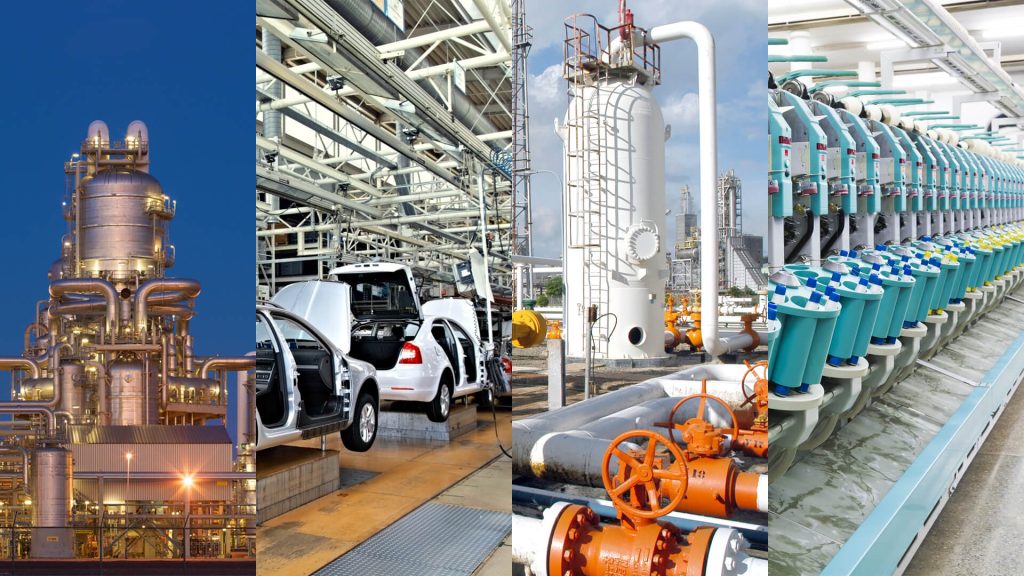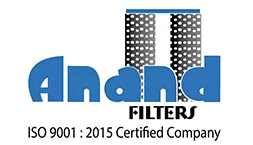
The Different Types Of Industrial Filtration And Their Benefits
To understand industrial filtration, it’s important to consider all of the steps that a product goes through before it reaches consumers. From raw materials to the purchase point, effective industrial filtration protects both consumers and companies from substandard or dangerous products
Anand Filters is a leading provider of industrial filters. Utilizing a variety of filtration technologies, the company has been able to consistently implement the best solutions available while continually striving to make a difference for customers and the environment. The product range of industrial filters is used in different types of industries including Chemical, Pulp & Paper industries, Power generation plants, Water Filtration applications and many more. In each application, Anand Filters provides a high level of performance and reliability, making it the filter supplier of choice for many companies around the world. With a commitment to quality and service, Anand Filters is your partner for all your filtration needs.
Read More: Different Types of Industrial Filters
The Various Types of Industrial Filtration: Their Process and Benefits
Many industries rely on filtration to maintain consistent quality. Depending on the type of industry, different types of filtration are going to be more beneficial. Each type of filtration has its own set of pros and cons that make it more beneficial in certain situations. Here is a run-down of the different types of filtration and their respective benefits:
Sedimentation Filtration
Sedimentation filtration is one of the most common forms of filtration. It is used in a variety of industries, from food and beverage production to water purification. Sedimentation works by allowing heavier particles to settle at the bottom of a tank while cleaner water is drawn from the top. The major benefit of sedimentation is that it is relatively low-cost and can be easily automated. However, sedimentation tanks require a large amount of space and are not very effective at removing smaller particles.
Gravity Filtration
Gravity filtration is similar to sedimentation in that it relies on gravity to separate particles. Gravity filters typically have a cloth or paper filter that captures impurities as water runs through them. The benefits of gravity filtration are that it can be easily automated and does not require chemicals or electricity to operate. However, gravity filters can become clogged easily and are not effective at removing dissolved impurities.
Pressure Filtration
Pressure filtration uses pressure to force liquid through a filter. This method is typically used for industrial wastewater treatment or swimming pool filtration. Pressure filters can be made from a variety of materials, including cloth, paper, pleated polypropylene, or fiberglass. The benefits of pressure filtration are that it is effective at removing small particles and can be easily automated. However, pressure filters require regular maintenance and can be expensive to operate.
Membrane Filtration
Membrane filtration is a process used to create many food and beverage products, such as low-fat or no-fat dairy items and whey proteins. The liquid feedstock is pumped through a membrane system, which divides it into two separate streams. There are several types of membrane filtration, including microfiltration, ultrafiltration, nanofiltration, and reverse osmosis. Transmembrane pressure refers to the force required to push water molecules through a permeable membrane.
Centrifugal Filtration
Centrifugal filtration employs rotational movement of the filter body to separate high-density solids or liquids from low-density fluids. No preparation of any filter medium is necessary; rather, only a defined rotational speed of the equipment is required.
Vacuum Filtration
Vacuum filtration is a method of removing suspended dust particles from the atmosphere. The process uses suction or static pressure to draw the air through a filter, which traps the dust particles. This method is effective at removing a wide range of particulates, including pollen, mould spores, and dust mites. Vacuum filtration can be used in a variety of settings, including homes, offices, and factories. It is an important tool for reducing airborne contaminants and creating a healthier indoor environment.
Mechanical filtration
Mechanical filtration is one type of filtration that is used in industries where the operating pressure is higher than the atmospheric pressure. This type of filtration uses an arrangement of the medium within the main filter body to capture and remove particles from a fluid stream. The medium can be made from a variety of materials, such as paper, cloth, or metal, and the size and number of particles that can be removed depend on the type of medium used. Mechanical filtration is an important part of many industries, and it is vital that the equipment used is properly maintained to ensure efficient function.
Surface filtration
Surface filtration is a process in which a medium is used to remove unwanted particles from a primary fluid stream. The medium can be any number of things, but it is typically a porous material that can trap the particles on its surface. The most common example of surface filtration is the separation of tea dust from tea. In this process, the tea dust is stopped on the surface of the filter, while the liquid passes through. This allows for a clean cup of tea without any sediment. Surface filtration can also be used on a larger scale, such as in water treatment plants. In these applications, the medium is usually a bed of sand or gravel, and the goal is to remove impurities from the water before it is sent to homes and businesses. Surface filtration is an essential process in many industries, and it can be used to achieve a variety of objectives.
Filtration has many benefits, including extending the life of equipment, protecting sensitive components, and improving indoor air quality. Industrial applications require specific types of filtration based on the fluid being filtered and the desired outcome.
The Different Uses of Industrial Filtration: A Summary
Different industries have different needs when it comes to filtration. There is no one-size-fits-all solution when it comes to choosing the right type of filtration for your business. Filtration is an important process that is used to remove contaminants from fluids like air, oil, water, and gas. Air filtration extends the life of equipment, protects sensitive components, and improves indoor air quality. Oil filtration extends the life of engines and machinery by removing impurities from lubricating oils. Water filtration removes impurities from drinking water, making it safe for consumption. Gas filtration removes impurities from gases like methane and propane, making them safe for use in industrial applications. Each type of filtration has its own set of benefits that make it ideal for certain industrial applications. Thankfully, there are many options available so that you can find the best fit for your specific needs!

